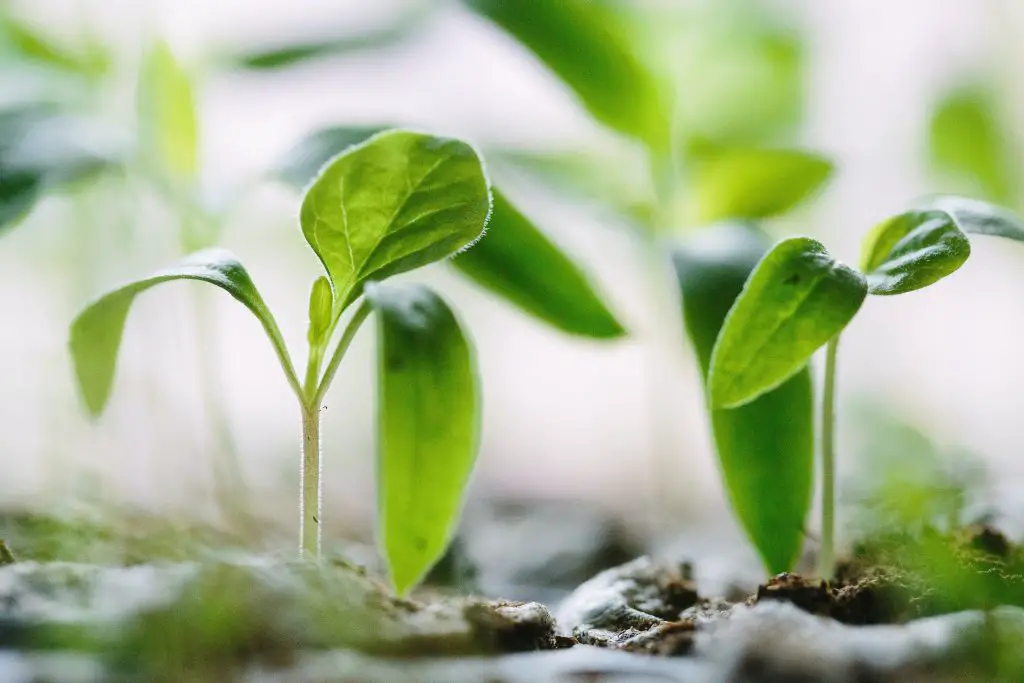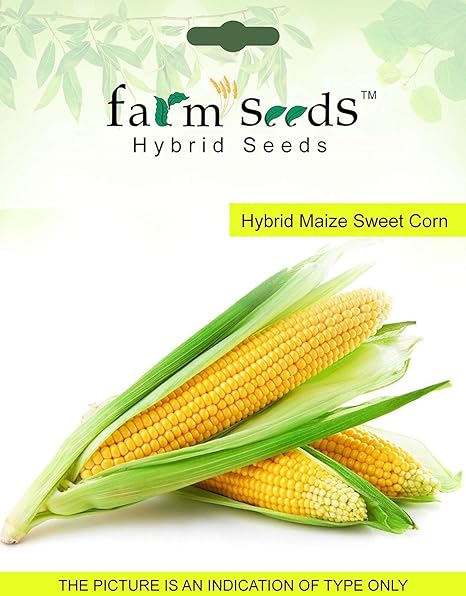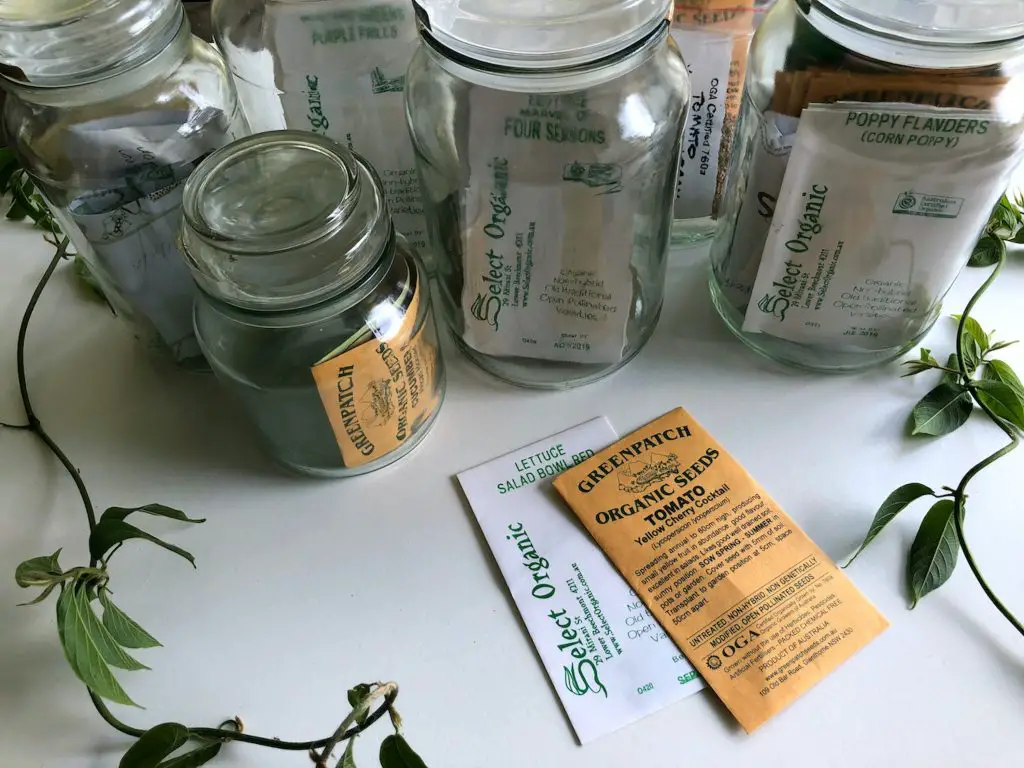What is an F1 Hybrid Seed? An F1 hybrid is a cross between two plants that is deliberately designed to create specific trait such as larger fruit or better disease resistance within a plant. The first generation of a hybridized plant, known as F1, tends to grow better and produce higher yields than the parent varieties due to a phenomenon called ‘hybrid vigor’.

Can you save F1 Hybrid seeds?
Seeds produced by F1 plants are genetically unstable and cannot be saved for use in the following years. The seed produced will not be true-to-type ie they will have different characteristics. They are also likely to be considerably less vigorous than the parent plant and have fewer of the desired characteristics. Gardeners who use hybrid plant varieties must purchase new seeds every year.
Why are F1 Hybrid Seeds used?
F1 hybrid seeds have been developed by seed companies since the early 1950s. Their rise in use coincided with the rise of the supermarkets after World War 2. This occurred because major supermarkets started to demand more consistent produce sizes that were more suited to extended supply chains.
As such many of the F1 hybrids have been developed specifically to provide a more consistent fruit in terms of size and color that is more durable in transit. The consequence of this is that flavor of these F1 hybrid fruits is often a secondary consideration if it is considered at all.
As a result, our supermarkets have become dominated by fruits and vegetables that transport easily to market but sometimes are inferior in flavor to traditional open-pollinated varieties. This difference is particularly noticeable in things like strawberries.
The one notable exception to this is sweet corn, which has had many F1 hybrid varieties focused on maintaining the sweetness kernels overtime. The sugars within corn kernels are rapidly converted to starch when the cobs are picked. However, even with these improvements the supermarkets really can’t complete with fresh produce from your own garden.

How do Hybrid seeds differ from Genetically Modified seeds (GMO’s)
F1 hybrid plants are grown from seeds that are cross-pollinated with human assistance. The hybridization process takes the pollen from one plant with desirable traits and rubs it on the stigma of another plant with desirable characteristics. This flower produces the seed that, when grown, exhibits a combination of suitable traits that enhance the plant’s performance in specific ways. In many ways, it speeds up what could potentially happen in nature over an extended period of time.
Farmers have long encouraged this process by selecting the plants with the best characteristics to take seed from. The first significant study into the process was published in 1865 by Gregor Mendel, when he discovered how dominant and recessive genes could be used to share traits with successive generations. This laid the groundwork for the kind of plant breeding we see today.
The generation of hybrids for the home gardener became commonplace after the end of World War II particularly in the case of tomatoes. The practices of commercial growers using hybrids shortly afterward created a vastly different set of parameters such as storage traits and harvest timing.

Seed companies continue to introduce new hybrids every year. These F1 hybrid seeds will only have a small percentage of seeds that are “true to type” in the second generation. The percentage of true seed can be increased over several generations, which will eventually create a stable hybrid. However, seed producers find it easier just to produce a new crop of the F1 hybrid every year as it easier and creates an ongoing income stream for them.
In the case of genetically modified seeds, commonly known as GMOs, genes from one plant are spliced into another in a laboratory. The fundamental difference here is that the genes from unrelated species can be combined to create a new species that would not occur in nature.
The concern for many people is that government bodies that reside over the registration of these seeds do not require adequate testing before release. This has created potential unintended consequences such as the creation of environmental weeds, through the creates of herbicide resistance species.

Additionally, what many people find distasteful about GMOs is the way in which companies such as Monsanto (now Bayer Crop Science) have sought to defend their intellectual property in court. They have effectively prevented farmers from saving seed in the traditional manner, in some regions, even in cases where the GMO seed has not been purchased for the farm. This has occurred because genetic testing has detected the presence of their seed technology in the crops due to contamination from neighbouring farms.
What is an heirloom seed?
Heirloom seeds are open-pollinated seed varieties that are pollinated naturally in the environment most commonly by insects and birds. They are more genetically diverse and if grown in isolation will produce seed that is ‘true to type’. ie the next generation of plants will have similar characteristics to the parent plant.
Heirloom seeds must be bred and stabilized using classic breeding practices and have no genetic modification to be considered an Heirloom. Additionally, Heirloom seed needs to have been in existence for an extended period of time. The length of time varies depending upon who you talk to but it is typically 50 to 100 years old with the period around the end of the second world war being common cut off point as it coincides with the widespread introduction of seed hybridisation. It is important to note that not all open-pollinated plants are heirlooms

Why sow heirloom seeds?
The primary advantage of sowing Heirloom Seeds is that they can be saved year on year where is hybrid seeds need to be repurchased every year. Additionally, there is a significantly wider variety of fruits and vegetables available when using heirloom Seeds.
The use of heirloom seeds in your own gardens represents an important contribution that a home gardener can make to the overall diversity of plants. The decline of seed diversity over the last 100 years has been dramatic as a result of the relentless effort to improve yields for the industrialized food system.
By continuing to purchase, grow and reproduce heirloom seeds we are essentially casting our vote with businesses to continue to offer these seeds on a commercial basis. While hybrids have their benefits, choosing open-pollinated varieties conserves the genetic diversity of garden vegetables and prevents the loss of these unique varieties.
A couple of companies that offer a number of Heirlooms is Seeds Now and Seeds for Generations in US and Morgan & Thompson in the UK click the links to see what they have on offer.
Related Articles
What Are The Advantages Of Hybrid Seeds Over Open Pollinated Seeds?
12 Tips To Boost Your Garden Output
When Should I Plant Winter Vegetables?
